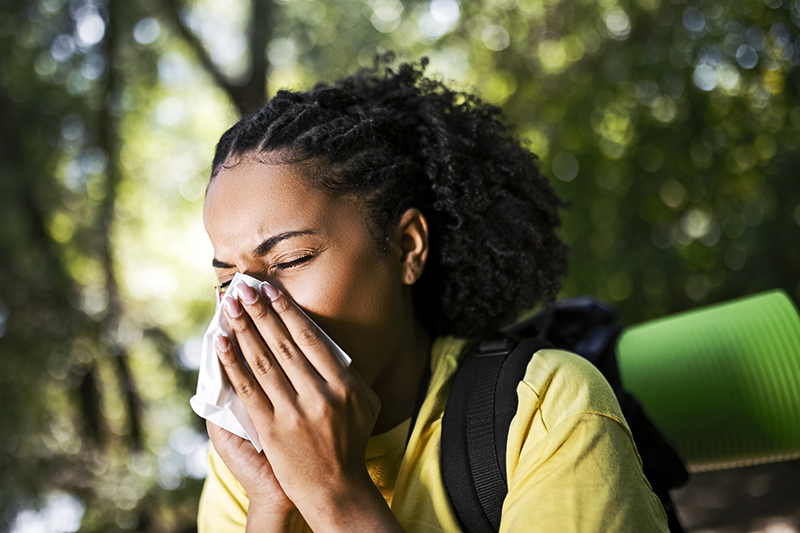Tips to get through allergy season

For many of us, spring is a time of year to look forward to. The days get longer, the weather gets warmer, and the flowers begin to bloom. However, for those with allergies, spring can be dreadful. If you're one of the millions of Americans who suffer from seasonal allergies, here are a few tips to help you get ready.
Experts say the best way to prepare for allergy season is to start now. “Make sure you have your allergy medications ready to go before you need them,” says Ashley Tromblay, Physician Assistant with EVMS Ear, Nose and Throat Surgeons. “That includes antihistamines, nasal sprays and eye drops.”
In fact, she suggests starting your medications before it warms up outside. “It’s best to begin your allergy routine two to four weeks before your allergy season begins and continue them daily to protect against pollen allergies.
It’s also important to know your triggers. “If you suffer from seasonal allergies, chances are you already have a pretty good idea of what sets them off,” says Ms. Tromblay. “Typically, trees pollinate in the spring, grasses in summer and weeds in the fall.”
The warmer weather in the spring inspires many to open windows, but that can make allergies worse. Experts say it’s best to keep the windows shut if you tend to have a stuffy nose during that time of year as pollen can easily drift into your home through an open window.
When you do go outside, you might want to consider a mask. When pollen counts are high, consider wearing a mask when you go outside. This will help to filter out some of the pollen and other allergens that could trigger your allergies.
It’s also a good idea to invest in an air purifier. An air purifier can help to remove allergens from the air in your home and make it easier to breathe.
Last, but not least, experts say to stay hydrated. Drinking plenty of fluids helps thin mucus and makes it easier for your body to flush out allergens and other irritants that can trigger an allergic reaction.
Seasonal allergies can be tough to deal with, but these simple tips can help make the next few months a bit easier. From knowing your triggers to wearing a mask outdoors, there are plenty of things you can do to prepare for allergy season.
If you find yourself sniffing and sneezing all year long, Ms. Tromblay recommends allergy testing to determine exactly what is triggering you. She says knowing that information may also help decide whether you’re a candidate for allergy immunotherapy, also known as allergy shots.
To learn more about allergy treatments, visit evms.edu/ent or call 757.388.6200.